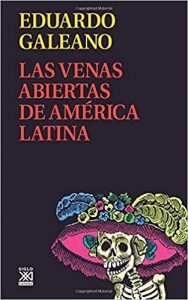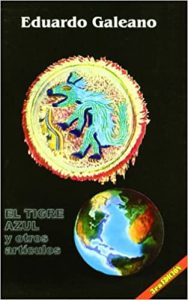Journalism and literature maintain broad communicating vessels. The cases of journalists who end up dedicating themselves to fictional narrative multiply everywhere. Eduardo galeano it is one of the most representative examples of Ibero-American literature. His journalistic involvement was also mixed with his political position that ended up leading him to jail and subsequent exile to Spain.
The dictatorship hardly agrees in any case with the free thinkers of any region, the dogmas, the maxims and sentences with which they intend to establish and establish a dictatorial political system always have an intense impact on committed people like Galeano, who end up being fundamental figures for the restoration of democratic systems.
Under these premises it is easy to guess that Eduardo Galeano's books end up extending beyond fiction to end up connecting with the essay and even collections of articles of a social nature. In any of these areas, Galeano was a true teacher, a benchmark for many other authors.
When he was able to return to his country, after the dictatorship was defeated, he resumed his journalistic activity along with other intellectuals and writers, without ever leaving aside the novel.
3 recommended novels by Eduardo Galeano
Las venas abiertas de America Latina
Under this title it is easy to imagine how vindictive the work is. From a novelistic style, Galeano composes a mosaic where he ends up inserting real scenery, political circumstances and their human significance.
An accurate presentation of the ultimate truth of Latin America for the whole world. Let's say that what may seem like a novel at times ends up becoming an excuse to narrate the world of Uruguay, as well as other countries around it.
Summary: Contains chronicles and narrations that give evidence of the constant looting of natural resources that the Latin American continent suffered throughout its history at the hands of colonialist nations, from the XNUMXth to the XNUMXth century, and imperialists, from the XNUMXth century onwards.
«I wrote Las venas to disseminate other people's ideas and my own experiences that perhaps help a little, in its realistic measure, to clear up the questions that have always haunted us: is Latin America a region of the world condemned to humiliation and poverty? Condemned by whom? Guilt of God, guilt of nature? Is not misfortune a product of history, made by men and that by men can, therefore, be undone?
This book was written with the intention of divulging certain facts that the official story, the story told by the victors, hides or lies. I know it might be sacrilegious for this popularization manual to talk about political economy in the style of a love story or a pirate novel. I believe that there is no vanity in the joy of verifying, after time, that Las veins has not been a silent book.
The Adventures of the Young Gods
Pre-Columbian cultures proliferated throughout the American continent with an overwhelming variety. The new world had nothing new. The ancestral is shown to be eternal in this narration by maestro Galeano.
Summary: This is the story of two brothers who, in the beginning of time, dared to invade the Kingdom of the Proud.
The arrogant were so wicked that they forbade birdsong and forced rivers to run in silence, so that only the tinkling of their golden bells could be heard.
And they destroyed the forests and all their creatures. Ready to fight them, brothers Ix and Hun advanced despite everything. They had as allies the animals and plants of the jungle. Eduardo Galeano tells us about the incredible adventures and trials they had to go through to overcome fear and regain joy.
The blue tiger and other items
With this particular narrative that delves into the particularities of Latin America and that rescues fictions to invade them with reality, Galeano surprises with this brilliant, unclassifiable ensemble.
Summary: Series of articles that address, with identical passion, different themes of "America Nuestro" since its discovery in Spain, passing through glittering themes of literature, culture, history; nostalgia for exile, military dictatorships and the anthological piece "El tigre azul", inspired by a Guarani legend in which the world must be reborn when the blue tiger, who sleeps under Father First's hammock, unties himself and breaks this universe for another new sprout from its ashes.
It will be a world without evil and without death, without guilt and without prohibitions; a superior world where reason, justice, love, happiness and peace reign.



